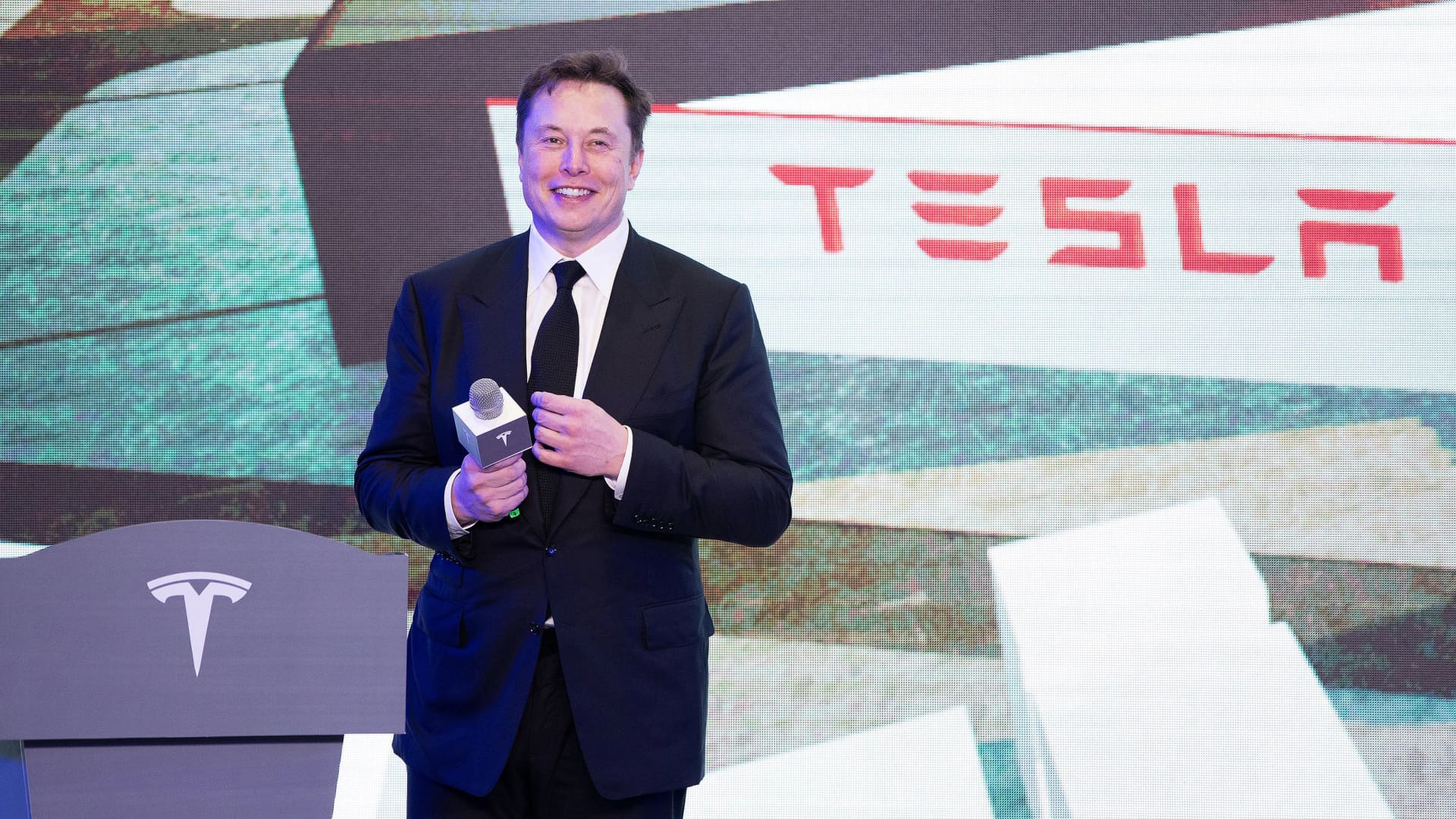
Tesla CEO Elon Musk attends an opening ceremony for Tesla China-made Model Y program in Shanghai, east China, Jan. 7, 2020.
Ding Ting | Xinhua News Agency | Getty Images
Tesla shares slipped more than 7% Monday morning after the company cut the price of some of its cars in China.
Tesla slashed the price of its Model 3 and Model Y vehicles in China, one of the company’s most critical markets.
The starting price for the Model 3 sedan was reduced to 265,900 Chinese yuan ($36,615) from 279,900 yuan. The Model Y sports utility vehicle now costs 288,900 yuan versus the previous price of 316,900 yuan.
Tesla’s cuts partly reverse some of the price increases the company was forced to carry out earlier this year in China and the U.S. on the back of rising raw material costs.
Elon Musk, CEO of Tesla, warned in March that his electric car company is “seeing significant recent inflation pressure in raw materials & logistics.”
The price cuts also come after Musk said he sees elements of a recession in China.
“China is experiencing a recession of sorts” mostly in the property markets, Musk said last week.
Tesla delivered 343,000 vehicles for the quarter ended Sept. 30, missing analyst expectations. The company does not break out how many cars were delivered in China. Tesla also missed analyst expectation on revenue in the third quarter.
However in September, the China Passenger Car Association reported Tesla delivered 83,135 China-made electric vehicles, a monthly record for the company. Tesla has a huge Gigafactory in the Chinese city of Shanghai which it completed upgrades on earlier this year.
Still, the price cuts come in the face of rising competition for Tesla in China from domestic firms such as Warren Buffett-backed BYD as well as upstarts Nio and Xpeng.
Other electric car makers have hiked prices this year including BYD and Xpeng, as rising raw material costs hit these companies.
The Chinese economy keeps facing challenges particularly as strict Covid-19 controls continue to weigh on retail sales. Third-quarter gross domestic product rose 3.9% from a year ago, beating expectations, but remaining below the official target of around 5.5% growth.





